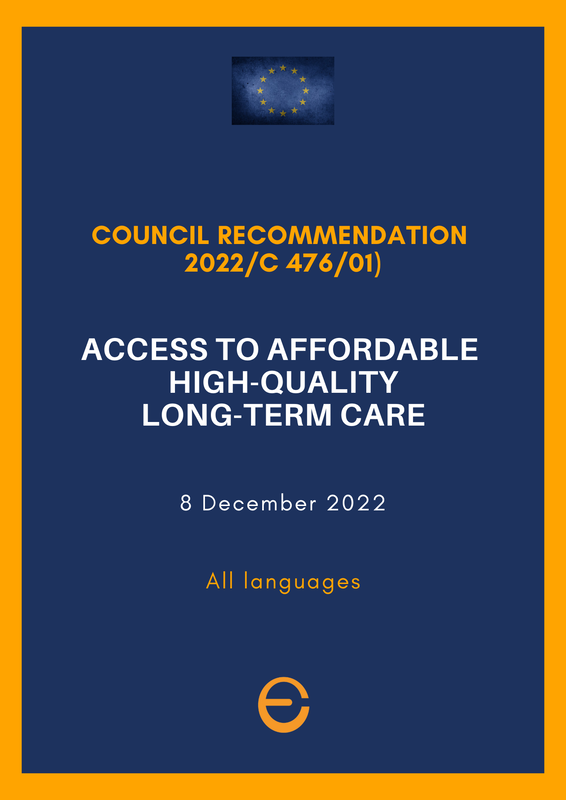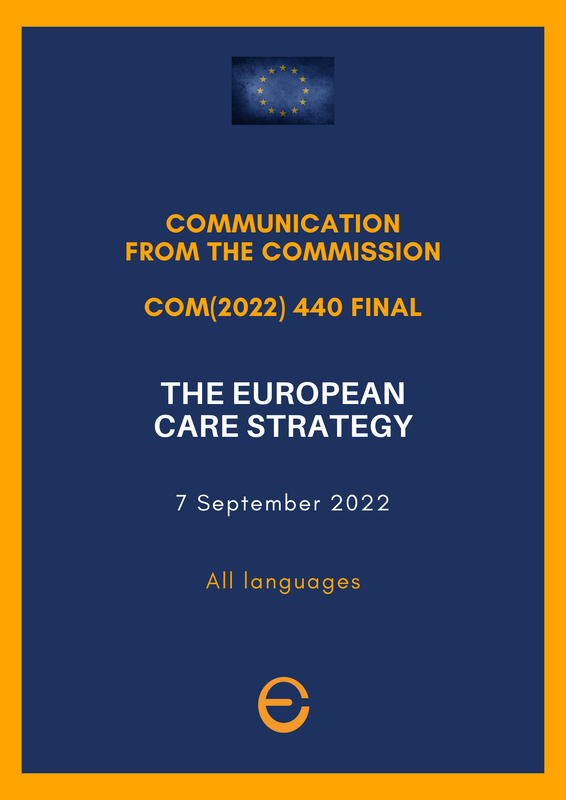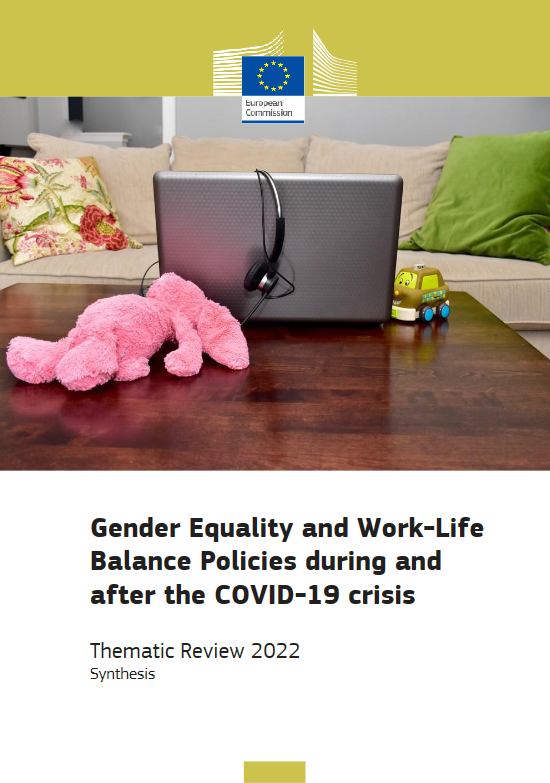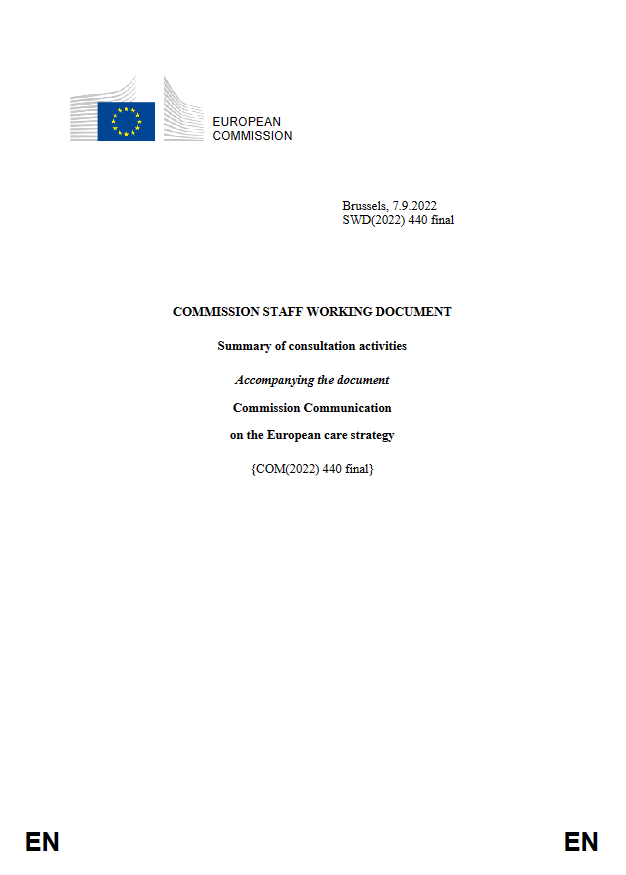Long term care
Long-term care consists of a range of services and assistance for people who, as a result of mental and/or physical frailty and/or disability over an extended period of time, depend on help with daily living activities and/or are in need of some permanent nursing care.
These daily living activities may be self-care activities such as bathing, dressing, eating, getting in and out of bed or a chair, moving around, using the toilet, and controlling physiological functions.
Alternatively, they may be related to independent living activities such as preparing meals, managing money, shopping for groceries or personal items, perform light or heavy housework and using a telephone
The risk of developing long-term care needs is higher towards older age, when people are more likely to experience functional ability decline. A little over a quarter of EU citizens aged 65+ report severe difficulties in personal care or household activities.
Principle 18 of the European Pillar of Social Rights stresses:
- the right to affordable long-term care services of good quality, in particular home-care and community-based services
- the right of people with caring responsibilities to suitable leave, flexible working arrangements and access to care services
- the right of women and men to have equal access to special leaves of absence in order to fulfil their caring responsibilities, while being encouraged to use them in a balanced way
|
Challenges
EU responses Responsibility for the design and delivery of long-term care services lies primarily with Member States. However, EU delivered two documents to help Member States in implementing High level Care Strategies and High-quality Long-term Care.
Other EU legislative acts or initiatives also touch upon different aspects of long-term care. For example, the Work-Life balance Directive aims to better support work-life balance for parents and carers, encourage a more equal sharing of parental leave between men and women, and address women’s underrepresentation in the labour market. Furthermore, the EU supports policy developments and reforms in this area by guidance, analytical and monitoring work, mutual learning and exchange of best practices, as well as financial support. This notably includes:
In 2023, European Centre of Expertise (ECE) in the field of Labour Law, Employment and Labour Market Policies, published the Thematic Review 2022: Gender Equality and Work-Life Balance policies during and after the COVID-19 crisis. This Review explains that the unequal distribution of unpaid care work between men and women is a major contributor to gender gaps in the labor market, with women having less access to and permanency in the workforce.
This creates vicious cycles where gender gaps in the labor market reinforce the unequal division of unpaid care work in households. Work-life balance policies, such as affordable and quality childcare and long-term care services, parental and paternity leave, and flexible working arrangements, are important for achieving gender equality in the labor market. Cultural and social norms also play a role in the gender division of unpaid work, but policy measures can help promote equal sharing of care tasks in households. |





